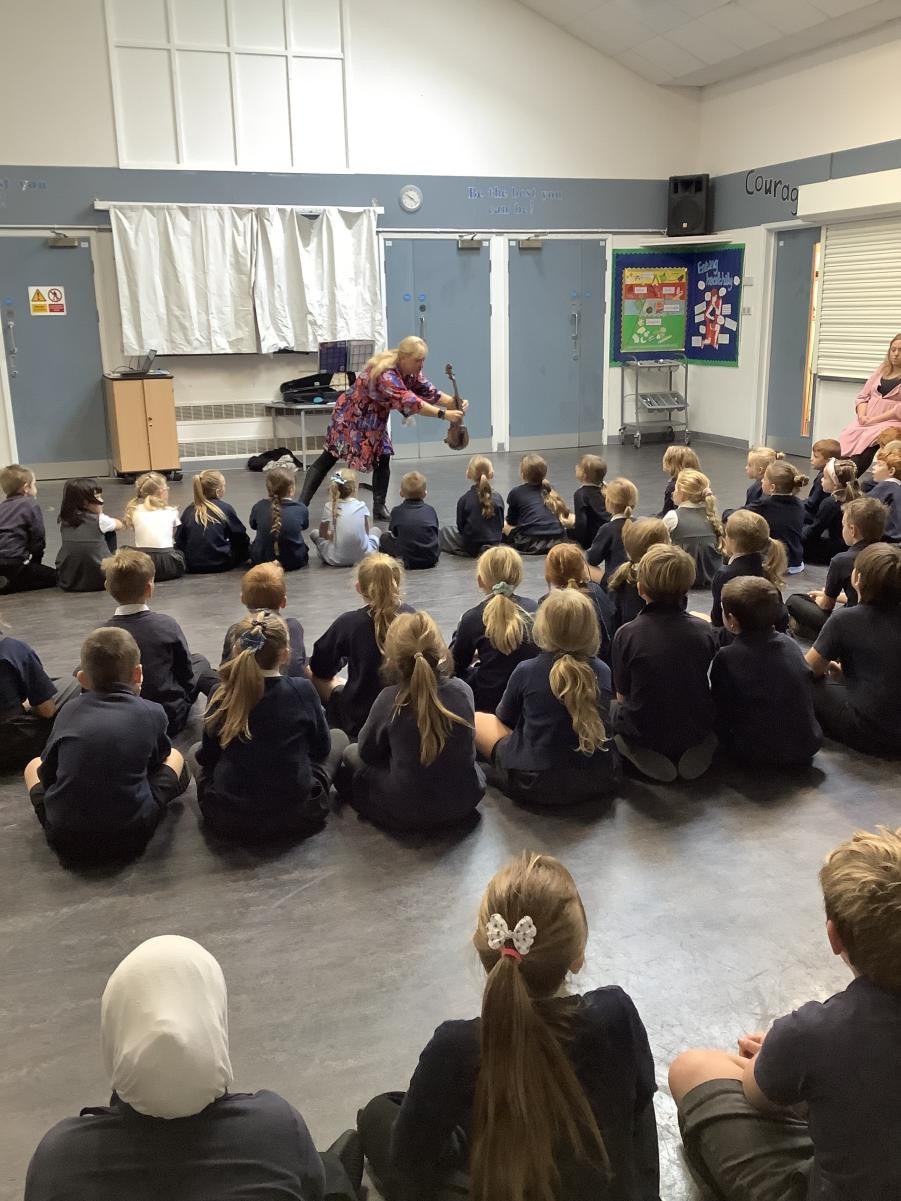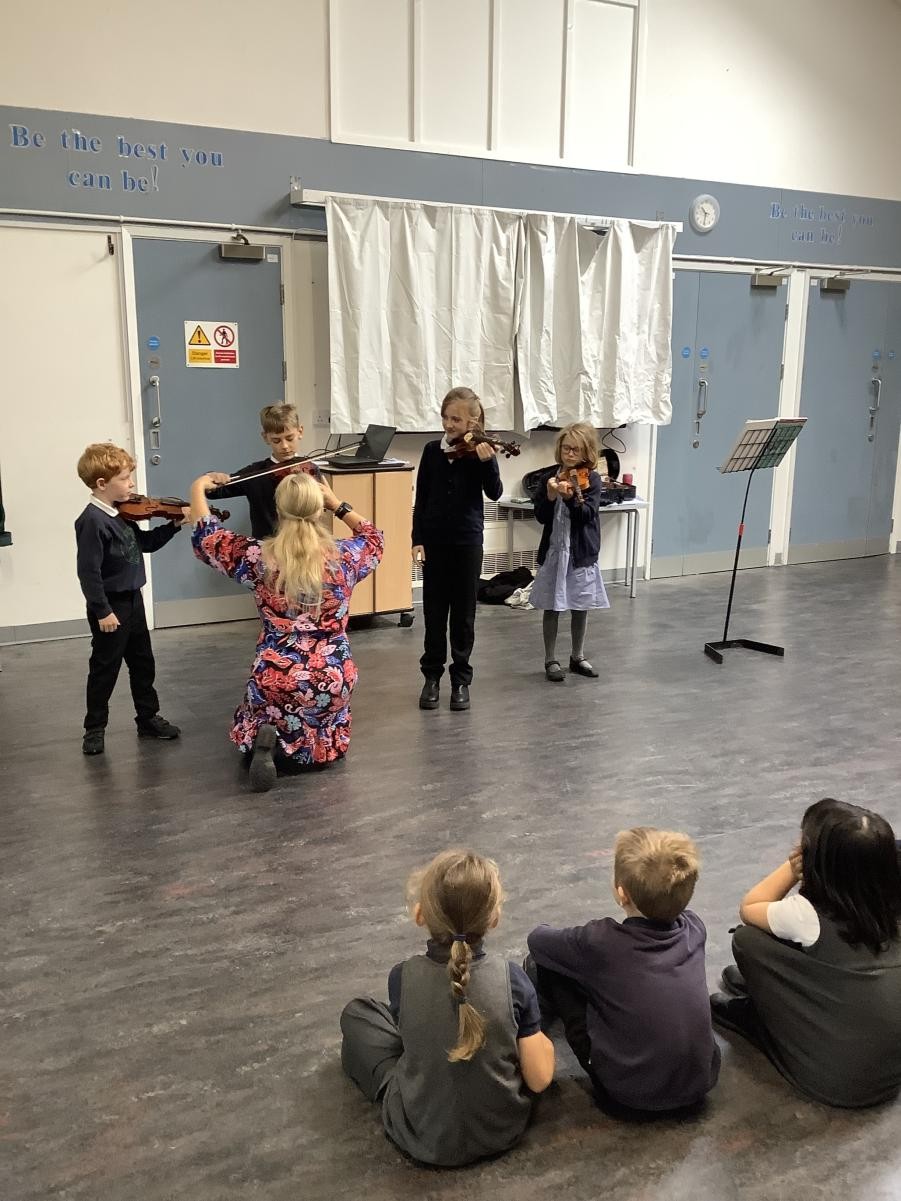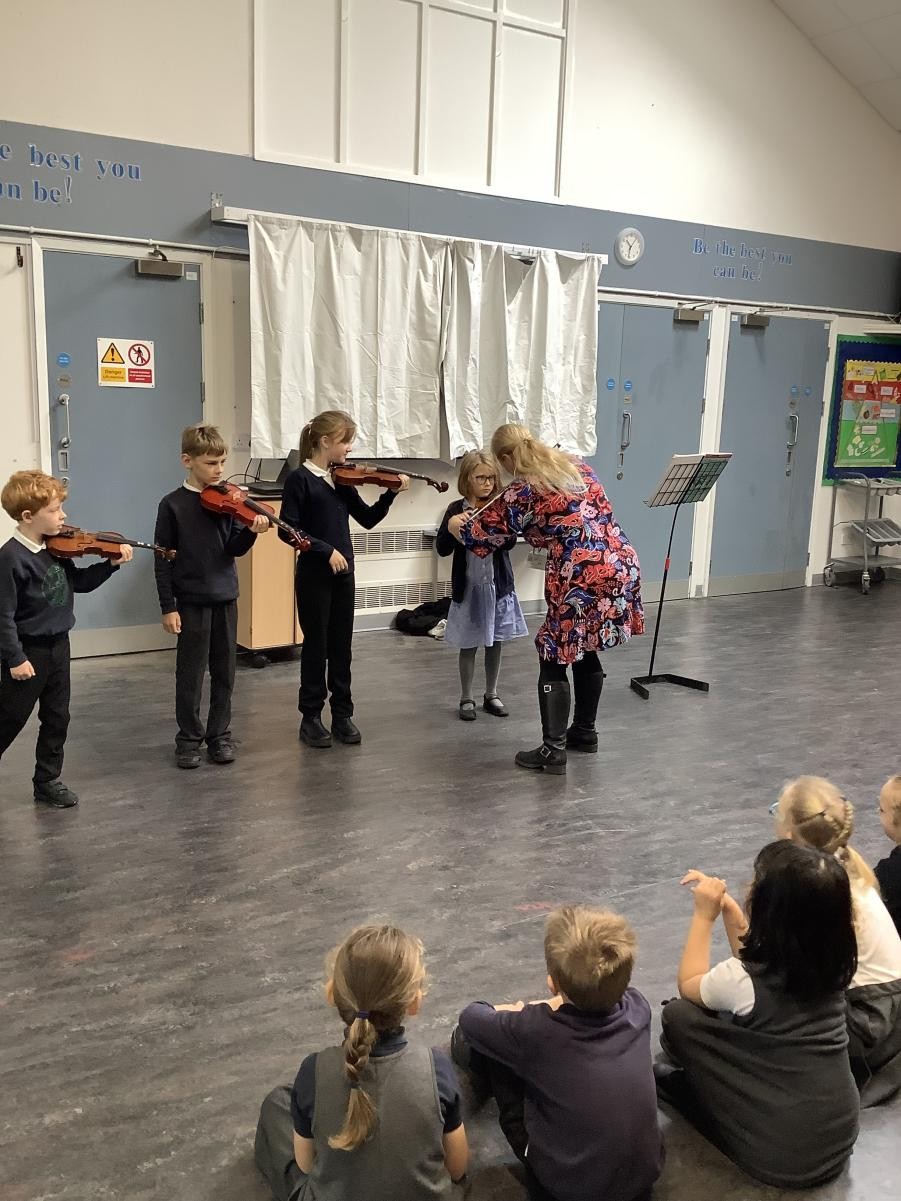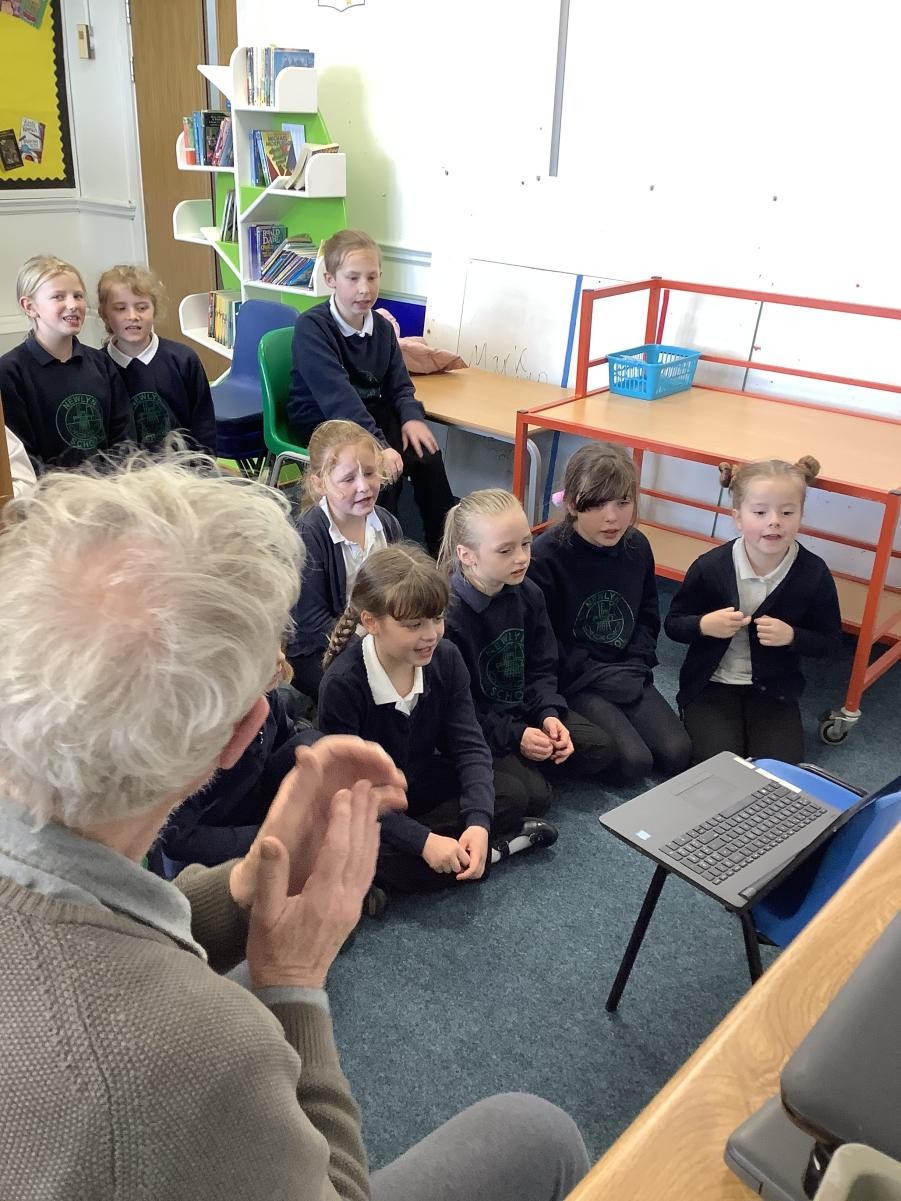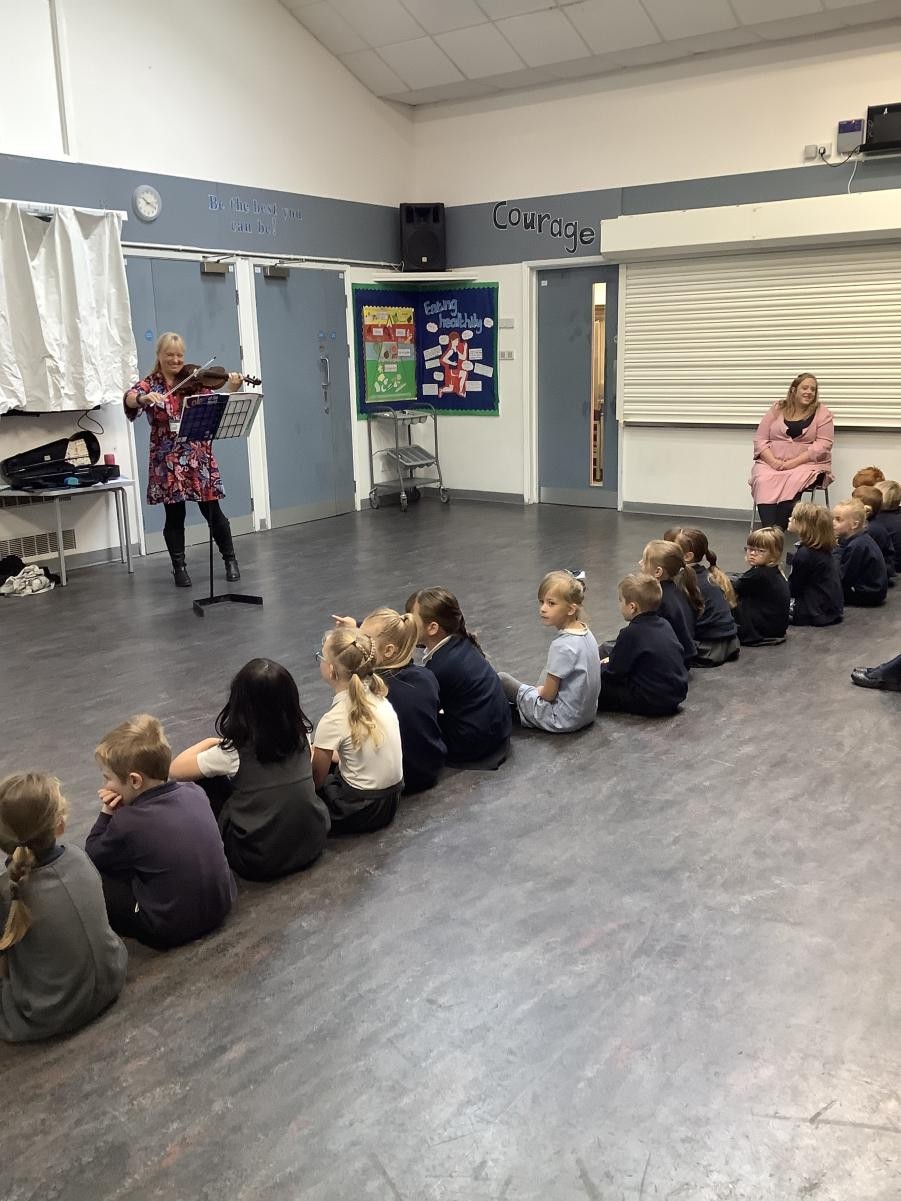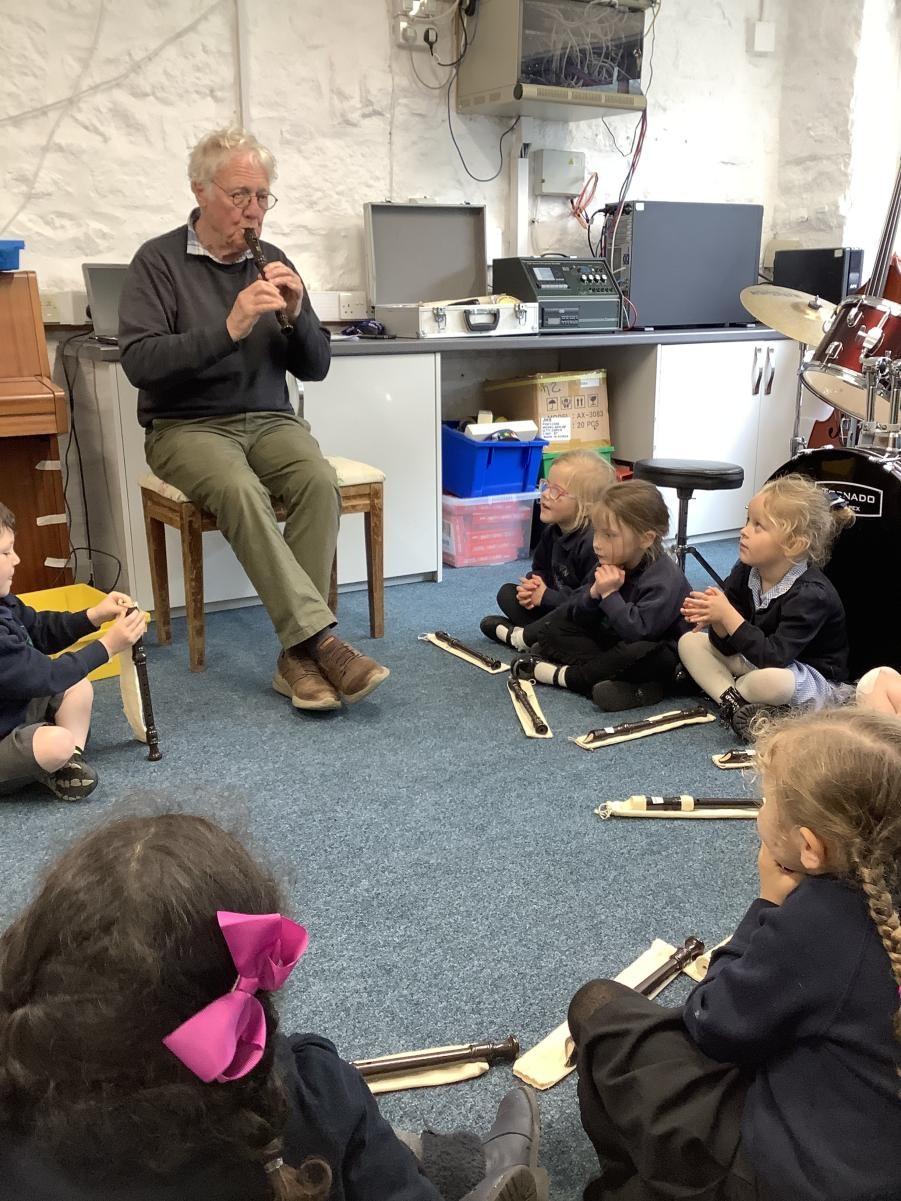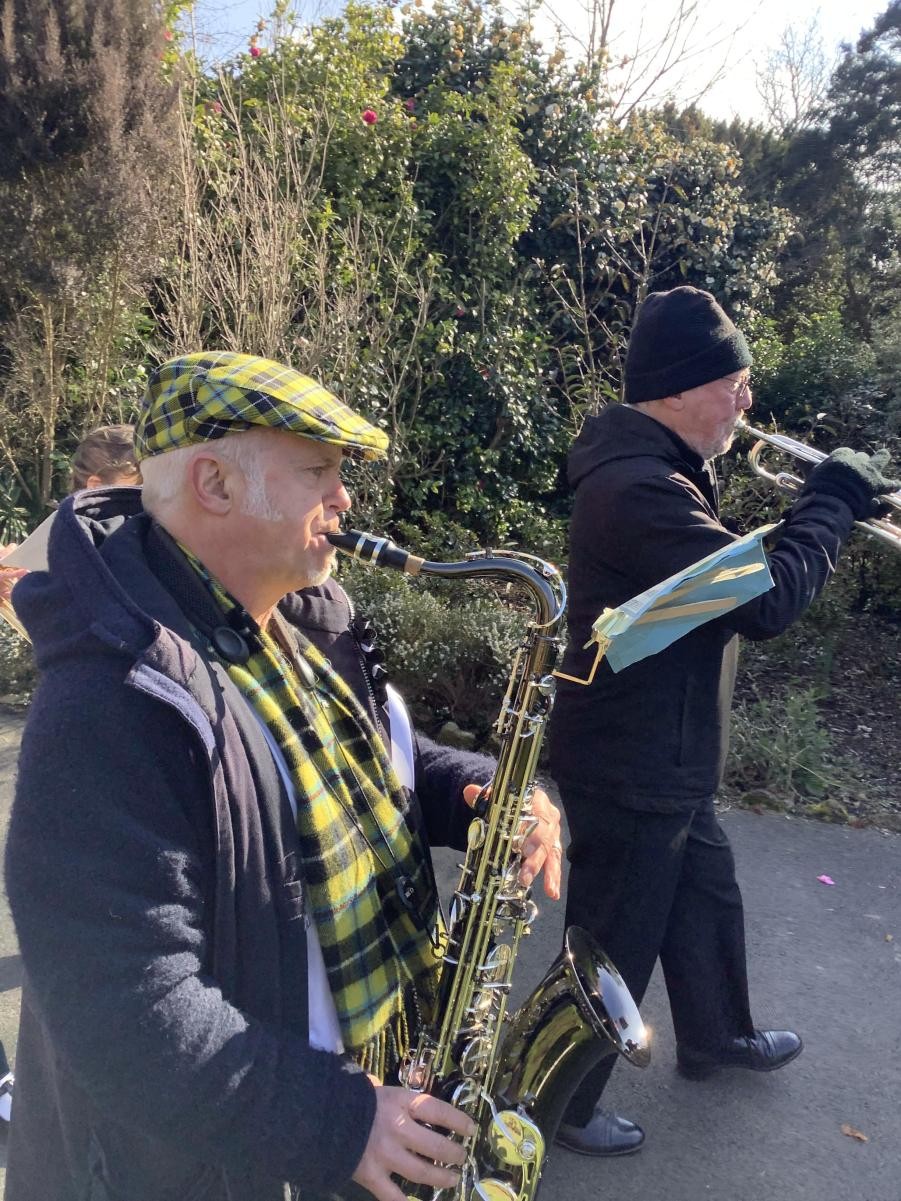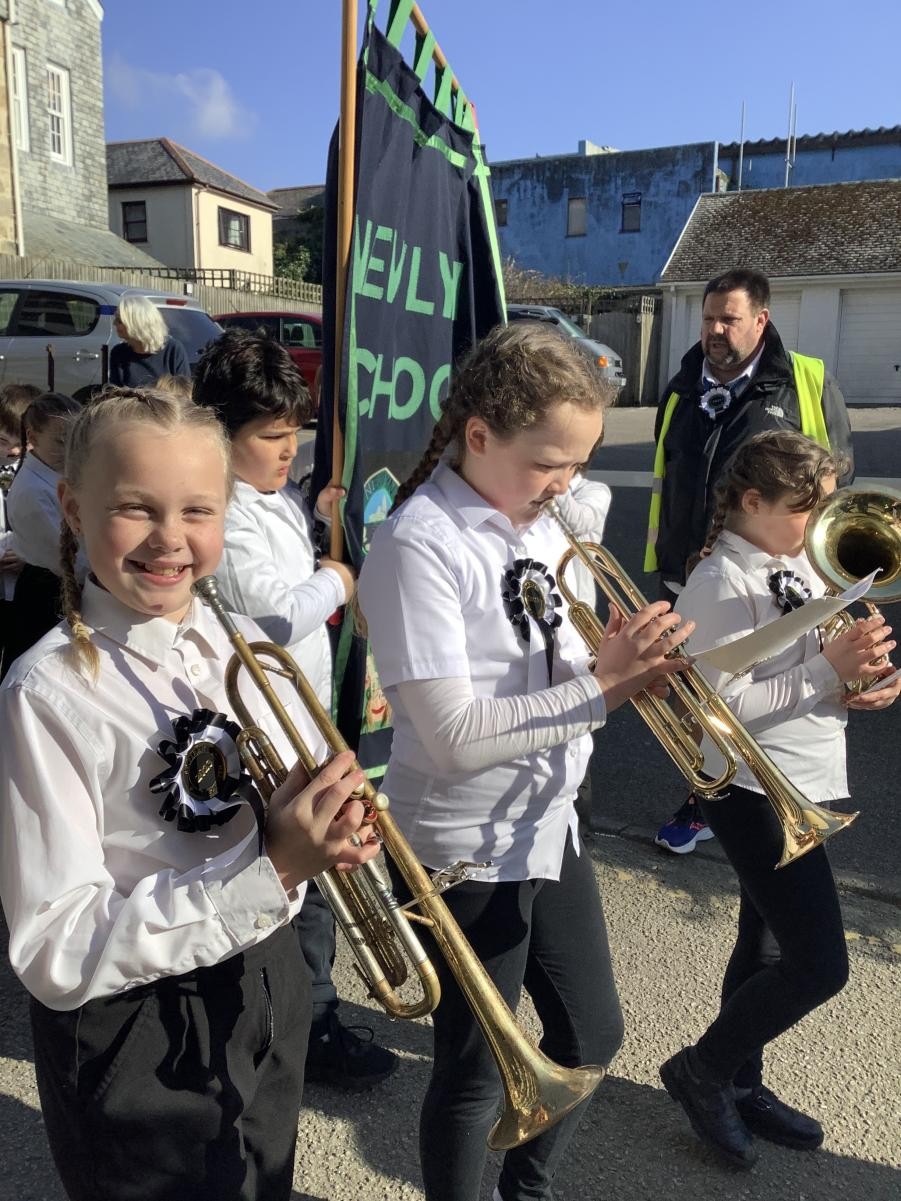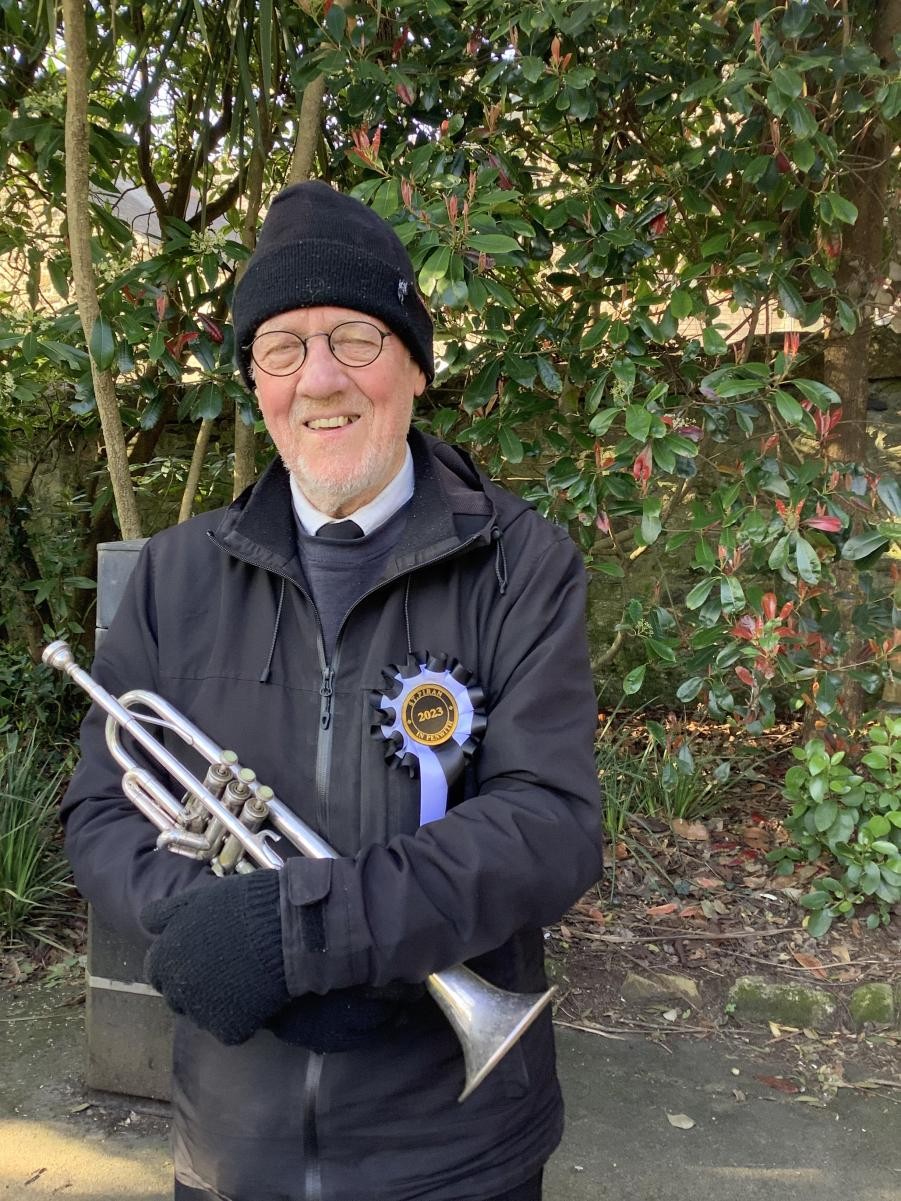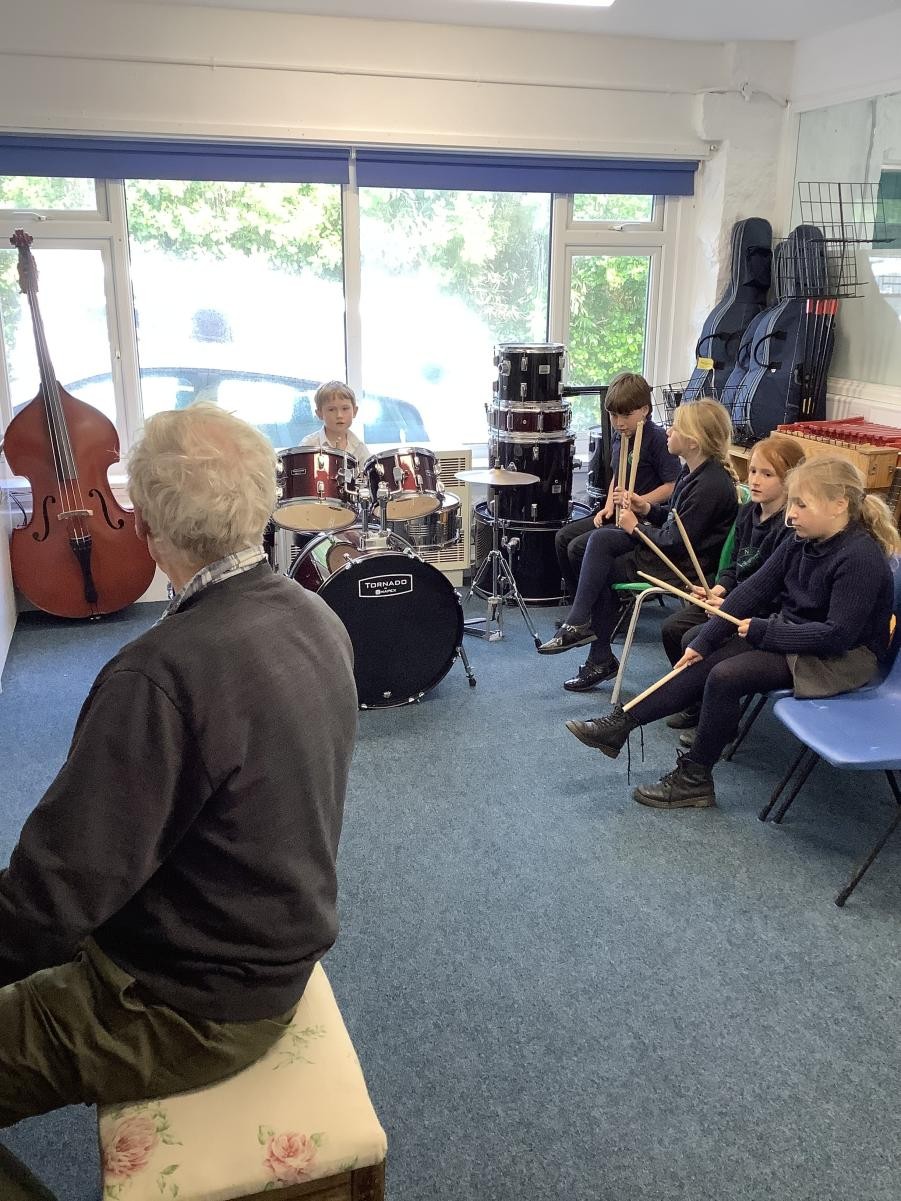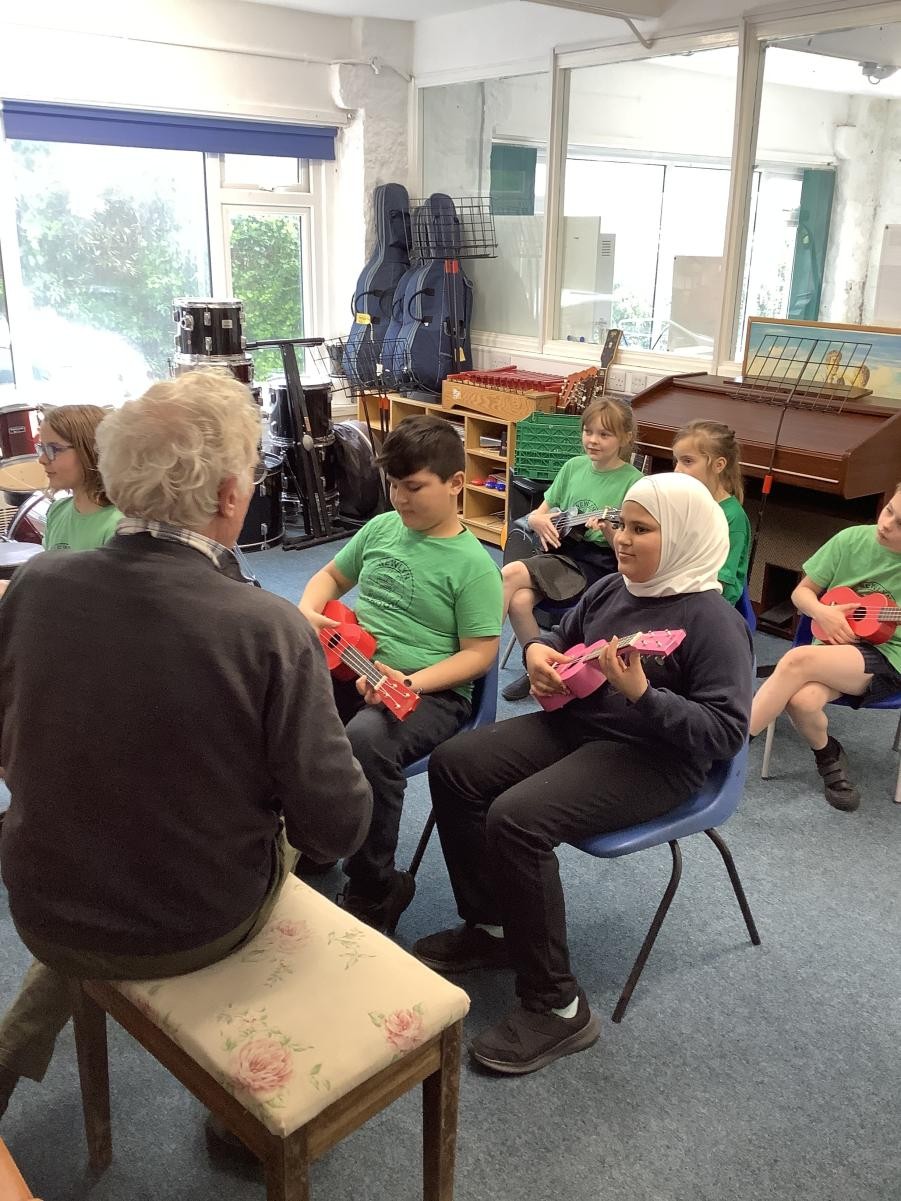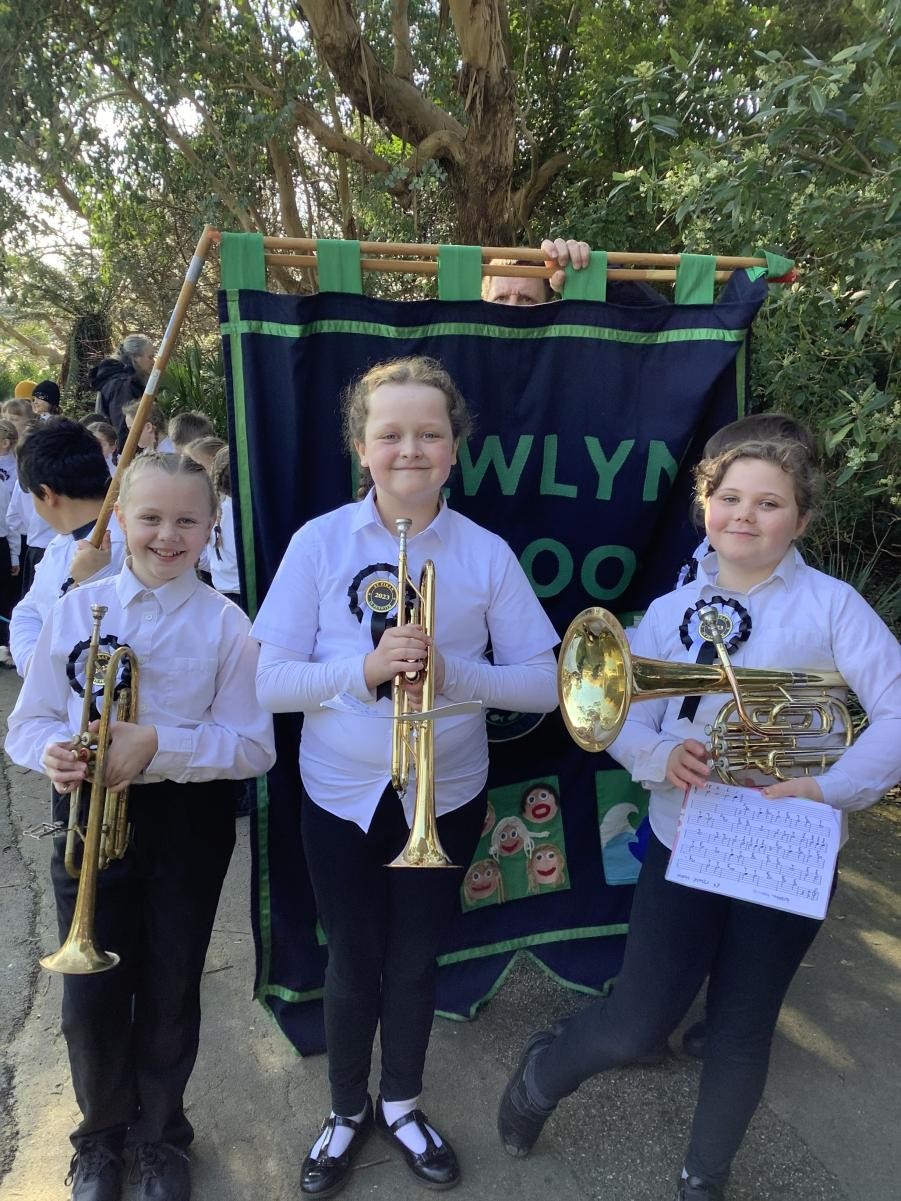Newlyn Music Curriculum
“Music gives a soul to the universe, wings to the mind, flight to the imagination, and life to everything.” – Plato
‘Everyone has an outstanding passion for music at Newlyn School, the children make excellent progress in singing and their singing is remarkable. I have no hesitation in saying that Newlyn is a thoroughly good practice school and the schools commitment to ensuring that all groups of pupils are included is outstanding, with excellent musicians and strong musical role models within the teaching staff.” Mark Phillips - Ofsted's National Adviser for music.
Music Intent
Music plays a central role in the education at Newlyn School; we are committed to ensuring that every child in the school has the opportunity to learn an instrument and singing throughout the week is the norm. Music is an important part of our culture at Newlyn and children of all ages are given opportunities to perform termly in concerts and shows. We use the Charanga Music Curriculum to teach our children.
Becoming a nurturing audience as well as a performer
Music brings confidence, powers the imagination and also helps children to express themselves and communicate. It is central to the role of acquiring language in the early years and performing songs is one of the ways the youngest children make their transition into the school to become part of the school community. Every child in the school has learned to become a member of a nurturing and attentive audience and children as young as four are encouraged to perform to their school audience. The older children learn how to encourage and praise the younger children; this is central to the forming of relationships, trust and confidence. This makes for a happy and confident school community.
Every child should have the opportunity.
Every child at Newlyn School has the opportunity to learn an instrument and we invest in this to ensure that every child can access these at a minimal cost, providing free loan of instruments, subsidised fees and music bursaries. We have a music specialist who delivers the National Curriculum alongside opportunities to develop individual skills at lunch times.
We employ peripatetic music teachers who offer lessons in a range of instruments; including violin and piano. Years 3 / 4 receive a term of specialist music technology, which platforms their musical compositions using instruments, voice and technology. And yr 2 / 3 his about to embark on a class violin journey.
Implementation – what does teaching look like?
One hour a week class lessons using Charanga.
Weekly singing assemblies where children are trained to use their voices and encouraged to perform, regardless of ability
Band and choir lunchtime sessions – performing in the community (Such as on St Piran's Day)
Music peripatetic lessons conducted in our music room
Impact: What will this look like?
By the time children leave our school they will be:
Confident performers in their chosen instrument or voice
Many children will become members of the choir in their secondary schools, including boys
Some children will join bands in their secondary school or with the music hub
Most children will have a very good awareness and appreciation of different musical traditions and genres.
Most children will be able to discuss music with a widening knowledge and thirst to explore music for life.
Musical Assessment and Progression at Newlyn School
Assessment of musical learning should be rooted in the reality of musical activity that the children undertake.
Progress is made over time and evidence from a series of assessments should be used to show this.
Musicality should be the centre of attention here; participation and enjoyment, whilst important, are only a part of what should be the assessment focus.
As this is music, assessment data is likely to include audio and/or video recordings of children’s work.
Assessment criteria against the progression statements are: (See attached statements)
- Working towards (Is not able to yet) For example, a child showing reluctance to participate or unable to grasp the skills
- At expected (Is able to)
- Is working beyond (Is confidently able to, may lead or initiate musical activities outside the lesson in order to make progress)

